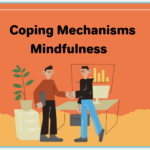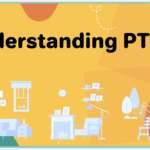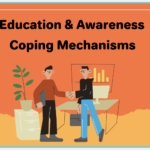Post-Traumatic Stress Disorder (PTSD) is a severe mental health condition that can develop after individuals experience or witness traumatic events. Among military veterans in the United Kingdom, PTSD has emerged as a prominent issue, significantly affecting their mental health and overall well-being. Studies indicate that a considerable percentage of veterans experience symptoms of PTSD, often attributed to the nature of their experiences during service. Combat, exposure to life-threatening situations, and the loss of comrades can leave lasting emotional scars, making it challenging for veterans to reintegrate into civilian life.
The effects of PTSD can manifest in various ways, including flashbacks, nightmares, severe anxiety, and uncontrollable thoughts about the traumatic event. These symptoms can hinder daily functioning and create barriers to maintaining healthy relationships, employment, and social interactions. Furthermore, the stigma surrounding mental health issues may prevent many veterans from seeking help, exacerbating their struggles. The transition from military service to civilian life presents unique challenges, as veterans often face a lack of understanding from their peers and may feel isolated and unsupported. This transition can trigger or intensify PTSD symptoms, highlighting the importance of addressing these mental health concerns promptly and effectively.
Coping with PTSD requires comprehensive support and resources tailored to the needs of veterans. The mental health challenges faced by military veterans necessitate targeted interventions and the establishment of supportive communities. Understanding the prevalence and impact of PTSD on UK veterans lays a crucial foundation for identifying the key organizations that offer vital resources, therapy, and rehabilitation services. Such organizations play an essential role in providing support and guidance, helping veterans navigate the complexities of post-military life and fostering their journey toward recovery.
Understanding the Role of Mental Health Organizations
Mental health organizations play an indispensable role in supporting military veterans, particularly those grappling with post-traumatic stress disorder (PTSD). These organizations serve as vital lifelines for veterans, offering comprehensive support that encompasses emotional, psychological, and practical assistance. The significance of these organizations cannot be overstated, as they facilitate a healing journey that many veterans struggle to navigate alone.
One of the primary functions of mental health organizations is to provide a safe and supportive environment where veterans can share their experiences and feelings. Peer support programs create a sense of community, allowing individuals to connect with others who have faced similar challenges. This communal aspect is particularly pivotal, as it fosters understanding and validates the experiences of veterans. The camaraderie built within these spaces often becomes a cornerstone for recovery, as veterans learn that they are not isolated in their struggles.
Additionally, mental health organizations often provide access to professional counseling and therapy services that are tailored specifically for veterans dealing with PTSD. Through these services, veterans can engage in evidence-based therapeutic interventions, improving their coping mechanisms and emotional resilience. Furthermore, these organizations frequently conduct workshops and training sessions focused on stress management and skills development, empowering veterans to manage their symptoms more effectively.
Beyond direct support, mental health organizations advocate for broader societal change regarding the perception of mental health issues among veterans. They contribute to campaigns aimed at reducing stigma, fostering awareness, and promoting the importance of seeking help. By engaging in public discourse, these organizations strive to create a culture that encourages veterans to prioritize their mental well-being. In essence, the collective aim of mental health organizations is to improve mental health outcomes for UK military veterans, ensuring they receive the support and resources necessary to thrive post-service.
Key UK Organizations Addressing Veterans’ Mental Health
The landscape of veterans’ mental health support in the UK is enriched by several key organizations dedicated to addressing the complexities surrounding conditions such as Post-Traumatic Stress Disorder (PTSD). These organizations play a pivotal role in offering a variety of resources and services to enhance the mental well-being of military veterans.
One prominent organization is the Veterans’ Mental Health Network (VMHN). This initiative aims to bridge gaps in mental health services for veterans and their families. VMHN collaborates with various NHS trusts and health care providers to ensure that veterans have access to appropriate treatment and resources tailored to their unique experiences, particularly concerning PTSD.
Another vital player is Combat Stress, which is renowned for its commitment to supporting veterans who suffer from mental health issues, including PTSD. Established in 1919, Combat Stress provides a range of services including clinical treatment, community outreach, and advocacy. Their specialized programs focus on tackling trauma-related conditions and promoting holistic approaches to recovery.
The Royal British Legion (RBL) also stands out as a significant resource for veterans struggling with mental health challenges. RBL provides comprehensive support services, including counseling and grants for mental health treatments. Their emphasis on community integration and social inclusion helps to create a supportive environment for veterans coping with PTSD.
Additionally, Help for Heroes is an organization dedicated to providing support and rehabilitation for veterans and serving personnel. They focus on a wide array of needs including psychological support, and their recovery programs are designed to assist individuals in overcoming the effects of trauma and adjusting to civilian life.
These organizations exemplify the collaborative effort to address the mental health needs of UK veterans. Their missions emphasize not only the treatment of PTSD but also the importance of community, understanding, and ongoing support in the recovery journey.
Support Services Offered by Veterans’ Mental Health Organizations
Veterans’ mental health organizations play a crucial role in providing comprehensive support services tailored to the unique needs of military veterans experiencing post-traumatic stress disorder (PTSD). These organizations seek to alleviate the psychological burden faced by service members who may struggle with the lasting effects of their experiences during deployment. The services offered encompass a range of therapeutic interventions, counseling sessions, peer support groups, helplines, and targeted outreach programs.
One of the primary services provided is individual and group therapy, which can help veterans articulate their feelings in a safe and controlled environment. Various therapeutic modalities are employed, including cognitive-behavioral therapy (CBT), eye movement desensitization and reprocessing (EMDR), and more. Each approach aims to address the symptoms of PTSD, assisting veterans in processing their traumatic experiences and developing effective coping strategies.
Counseling services are often available, providing veterans with a professional space for discussing their struggles. This support can help veterans navigate emotional challenges and achieve mental resilience. Peer support groups also serve as an invaluable component, enabling veterans to connect with their peers who have faced similar experiences. The sense of camaraderie within these groups can foster understanding, reduce feelings of isolation, and promote healing through shared experiences.
Many organizations offer helplines that provide immediate support for veterans in crisis. These services ensure that assistance is readily accessible, allowing veterans to reach out whenever they feel overwhelmed. Additionally, outreach programs are designed to engage veterans who may be reluctant to seek help, helping to raise awareness of available resources and encouraging them to participate in supportive programs. Collectively, these varied support services form a robust network capable of addressing the multifaceted psychological needs of veterans grappling with PTSD.
Success Stories: Positive Impact of Mental Health Organizations
The journey of healing from post-traumatic stress disorder (PTSD) can be a difficult and personal one for many veterans. However, numerous success stories highlight the positive impact that mental health organizations can have on individuals facing these challenges. One such testament comes from Mark, a former combat medic who struggled with severe anxiety and flashbacks. After reaching out to a reputable mental health organization, he was able to participate in a tailored therapy program that incorporated both individual counselling and group support. Mark recounts how these interactions have transformed his life, stating, “I no longer feel alone; I have a community that understands what I went through.”
Another inspiring case is that of Sarah, a veteran who faced overwhelming feelings of isolation after returning to civilian life. With the assistance of a mental health organization, she engaged in peer-led support groups. These sessions proved invaluable to her, helping her connect with others who shared similar experiences. Sarah emphasizes, “The connections made during those sessions have been instrumental in my road to recovery. It is comforting to talk to someone who truly gets it.” This sense of belonging and mutual understanding has been pivotal in alleviating her symptoms of PTSD.
Similarly, James, a veteran diagnosed with PTSD after his service, found empowerment through workshops focused on coping mechanisms and mindfulness practices offered by a mental health organization. He credits these resources with equipping him with tools to manage his anxiety better. “I learned how to focus on the present and cope with my thoughts instead of being overwhelmed by them,” he explains. These anecdotes reflect the substantial influence that mental health organizations can have, not just in addressing PTSD symptoms, but in fostering resilience and a renewed sense of purpose among veterans.
Accessing Resources and Support for Veterans
For military veterans dealing with post-traumatic stress disorder (PTSD), accessing the right mental health resources is crucial for recovery and well-being. The UK is home to numerous organizations dedicated to helping veterans navigate the complexities of mental health challenges. To effectively access these resources and support systems, it is essential to understand the steps involved and the contact points available.
The first step for veterans is to identify organizations that specifically serve their needs. Prominent mental health organizations, such as Combat Stress and the Veterans and Veterans Families (VVF) mental health service, offer tailored support. Veterans can reach out to these organizations through their websites or helplines, where they will find information regarding eligibility criteria and services offered. Most organizations have user-friendly online platforms that provide valuable resources including self-help materials, forums for peer support, and contact information for professional assistance.
When veterans make contact, it is advisable to have relevant personal information ready, such as service history and any prior treatment experiences. Typically, organizations will conduct a preliminary assessment to determine the nature of support required. Some services may require certain eligibility criteria to be met, which may include service duration, health status, or specific applications for programs. Knowing this information in advance can streamline the process.
Additionally, many veterans can receive guidance through their general practitioners (GPs), who are often familiar with local veteran-specific resources. GPs may provide referrals to specialized mental health services or support groups. Engaging with the local community, such as veteran associations or charities, can also yield recommendations for resources designed to cater to the mental health needs of veterans.
Overall, it is crucial for veterans to take the initiative in seeking support. By reaching out to the right organizations and preparing for the process, they can ensure access to essential services that pave the way for healing and recovery.
Volunteer and Community Involvement Opportunities
Supporting veterans with mental health challenges, particularly those dealing with PTSD, is a shared responsibility that extends beyond professional organizations. Community involvement plays a vital role in fostering a supportive environment that enables veterans to heal and reintegrate into society. One of the most impactful ways individuals can contribute is through volunteering. Numerous veterans’ mental health organizations actively seek volunteers to help with various activities ranging from administrative tasks to direct support for veterans.
Volunteers can participate in outreach programs that provide essential resources to veterans in need. This may include helping organize workshops, assisting with mental health awareness campaigns, or even providing companionship to veterans facing isolation. Additionally, many organizations host events that require volunteers, such as charity runs, fundraising galas, or awareness days. These events not only raise critical funds for veterans’ mental health initiatives but also serve to bring communities together in support of those who have served.
Fundraising efforts are another significant area where community involvement can make a difference. Individuals can take the initiative to organize their fundraising events, whether it’s a bake sale, sports tournament, or a sponsored challenge. Engaging local businesses to participate or donate can further amplify these efforts. When communities rally together, the financial support generated can help implement crucial programs and services tailored to veterans’ mental health needs.
Advocacy is also a key aspect of community involvement. By raising awareness about the mental health struggles that veterans face, individuals can help to dismantle stigma and encourage more veterans to seek help. Engaging in conversations on social media, attending town hall meetings, and collaborating with community leaders can heighten visibility and promote initiatives aimed at improving resources for veterans. Through these collective efforts, the community can contribute significantly to enhancing the mental well-being of those who have served their country.
Challenges Faced by Veterans with PTSD
Veterans with post-traumatic stress disorder (PTSD) encounter a myriad of challenges when seeking help, many of which can significantly hinder their recovery process. One of the foremost obstacles is the stigma associated with mental health issues, particularly within military culture. Many veterans may perceive reaching out for assistance as a sign of weakness, a belief that may stem from traditional notions of masculinity and resilience entrenched in military training. This stigma can prevent them from recognizing their struggles, seeking the necessary support, or openly discussing their experiences with peers and family.
Accessibility of services poses another significant challenge. While various organizations provide vital resources, not all veterans have equal access to these services. Geographic location can create disparities, as some individuals may reside in areas where mental health services are scarce or lack specialization in treating PTSD. Additionally, veterans may face difficulties navigating the complexities of healthcare systems, particularly when transitioning from active duty to civilian life. This transition can lead to gaps in treatment, exacerbating their mental health conditions.
Potential barriers to treatment often include financial constraints, which can deter veterans from pursuing psychological support. Many may struggle with job insecurity or underemployment after military service, making it challenging to afford therapy or medication. Furthermore, veterans may encounter long waiting times for appointments or complications in accessing veteran-specific resources, which can lead to frustration and further withdrawal from seeking help. The need for continuous development in outreach and responsiveness among mental health organizations cannot be overstated, as these barriers highlight systemic issues that require urgent attention. Addressing these challenges is essential for ensuring that veterans receive the support they need to recover and reintegrate successfully into society.
Conclusion: Moving Forward Together for Veterans’ Mental Health
The discussion surrounding veterans’ mental health, particularly in relation to Post-Traumatic Stress Disorder (PTSD), has become increasingly urgent in recent years. Various organizations across the UK play a crucial role in providing essential support, resources, and advocacy for military veterans grappling with mental health issues. As highlighted, the importance of early intervention and accessible mental health services cannot be overstated. Such initiatives not only help veterans in managing their symptoms but also facilitate their reintegration into civilian life, which can often be a challenging transition.
Moreover, it is evident that fostering a supportive community is instrumental in addressing the mental health needs of veterans. Collaborative efforts through organizations dedicated to veterans’ affairs create a network of support that is vital for those in distress. By participating in workshops, therapeutic activities, or support groups, veterans can benefit from shared experiences and guidance, aiding their recovery journey. Additionally, advocacy for mental health awareness helps to destigmatize the conversation around PTSD, encouraging more veterans to seek the support they need.
Readers are encouraged to take an active role in championing these mental health initiatives. Whether through volunteering time, donating resources, or simply spreading awareness, every action counts towards creating a more robust support system for veterans. Engaging with organizations that specialize in veterans’ mental health presents further opportunities to understand the challenges faced by military personnel and the significance of timely intervention. With commitment and collaboration, we can improve the landscape of mental health care for veterans, ensuring that no one faces these challenges alone.






